1127 Connecticut Avenue, NW
Washington, DC 20036

The Role of Congress
November 12 — 14, 2015The Federalist Society's 2015 National Lawyers Convention was held on Thursday, November 12 through Saturday, November 14 at the Mayflower Hotel in Washington, D.C. The theme of the convention was: The Role of Congress.
Back to top2015 National Lawyers Convention
| Topics: | Constitution • Federalist Society • Founding Era & History • Separation of Powers • Federalism & Separation of Powers • Article I Initiative |
|---|
Senator Mike Lee opened the 2015 National Lawyers Convention on November 12 at the Mayflower Hotel in Washington, DC. Senator Lee discussed the role of Congress.
2015 National Lawyers Convention
| Topics: | Article I Initiative • Constitution • Founding Era & History • Separation of Powers • Federalism & Separation of Powers |
|---|
What was the founders' conception of the role of Congress? Was that conception clearly understood? To what degree was that conception followed during our nation's early years and to what degree did early Congresses follow the Constitution? To what degree were members of Congress representing their districts and to what degree were they representing national interests? In what ways did the Senate and the House originally operate differently? Originally, the prevailing view was that “the laws that free men live under are the laws that have been hauled up." In other words, we are ruled by the laws that we and our neighbors made. Was this ever true?
2015 National Lawyers Convention
| Topics: | Separation of Powers • Federalism & Separation of Powers |
|---|
Assistant to the President and White House Counsel Neil Eggleston delivered this address at the 2015 National Lawyers Convention on Thursday, November 12, 2015. He was introduced by Mr. Dean A. Reuter, Vice President & Director of Practice Groups at The Federalist Society.
2015 National Lawyers Convention
| Topics: | Jurisprudence • Litigation • Supreme Court |
|---|
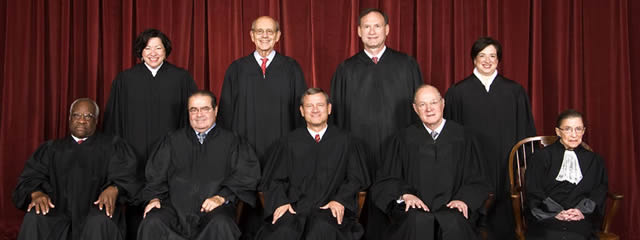 It has been ten years since John Roberts was appointed as the 17th Chief Justice of the United States. During his confirmation hearing, Chief Justice Roberts promised to be a Justice who would "call balls and strikes." In his first decade on the Court, he has written for the Court in some of most consequential cases in recent history and dissented in others. He has been both applauded and criticized by both ends of the political spectrum. He also has begun to craft his legacy as Chief Justice and leader not only of the Supreme Court but of the entire federal judiciary. This panel will present a range of views on the first ten years of the Roberts Court. The panelists bring a variety of perspectives: practitioner, journalist, academic, and Senate staff at the time of his confirmation. They will discuss the substance of the Roberts Court's opinions, what legacy the Chief Justice is crafting, whether he is succeeding in shaping the Court into a "Roberts Court," and whether his jurisprudence is consistent with what was expected at the time he was appointed.
It has been ten years since John Roberts was appointed as the 17th Chief Justice of the United States. During his confirmation hearing, Chief Justice Roberts promised to be a Justice who would "call balls and strikes." In his first decade on the Court, he has written for the Court in some of most consequential cases in recent history and dissented in others. He has been both applauded and criticized by both ends of the political spectrum. He also has begun to craft his legacy as Chief Justice and leader not only of the Supreme Court but of the entire federal judiciary. This panel will present a range of views on the first ten years of the Roberts Court. The panelists bring a variety of perspectives: practitioner, journalist, academic, and Senate staff at the time of his confirmation. They will discuss the substance of the Roberts Court's opinions, what legacy the Chief Justice is crafting, whether he is succeeding in shaping the Court into a "Roberts Court," and whether his jurisprudence is consistent with what was expected at the time he was appointed.
2015 National Lawyers Convention
| Topics: | Labor & Employment Law • Law & Economics |
|---|
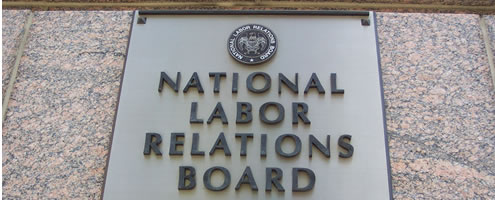 Our nation's private sector labor law is a product of the New Deal and the industrial age. In its first edition, the 1935 Wagner Act, employee rights to organize were recognized and employer unfair labor practices were defined. Twelve years later, the pendulum swung and union unfair labor practices were added to the Act. To address corruption, the 1959 Landrum-Griffin Act was enacted to require labor organizations, employers, and labor relations consultants to file annual reports, and union members were granted a Bill of Rights. The NLRA was last amended in 1974, addressing the health care industry.
Our nation's private sector labor law is a product of the New Deal and the industrial age. In its first edition, the 1935 Wagner Act, employee rights to organize were recognized and employer unfair labor practices were defined. Twelve years later, the pendulum swung and union unfair labor practices were added to the Act. To address corruption, the 1959 Landrum-Griffin Act was enacted to require labor organizations, employers, and labor relations consultants to file annual reports, and union members were granted a Bill of Rights. The NLRA was last amended in 1974, addressing the health care industry.
Over the past 80 years, our nation's economy, indeed, the global economy, has changed significantly. While some efforts have been made over the last four decades to amend federal labor law, none have succeeded. To fill the vacuum, the National Labor Relations Board has stepped in as what some would describe as a quasi-legislature, issuing decisions and rules reflecting the Board's political majority's bias to circumvent Congressional deadlock.
Should labor law be viewed as a vehicle to restore organized labor's density of 60+ years ago or to ensure employee rights to join or not join a labor union? Or, should labor law be overhauled to ensure labor unions' presence globally and to empower organized labor to affect or determine global work standards and business models generally? And, should labor law be politically aligned with one party? Is labor law about the American citizen/worker or about organized labor's institutional survival?
2015 National Lawyers Convention
| Topics: | Administrative Law & Regulation • Corporations, Securities & Antitrust • Federal Courts • Separation of Powers |
|---|
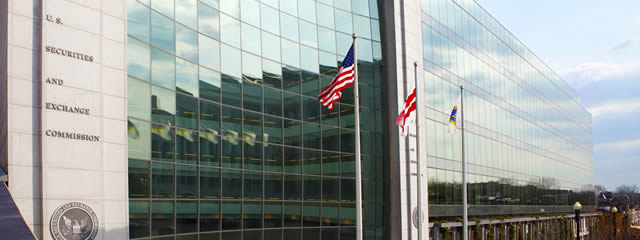 The Securities and Exchange Commission (SEC) has recently increased its use of administrative proceedings, before Administrative Law Judges (ALJs), to seek civil penalties, as an alternative to proceeding in an Article III court. Other federal regulatory and enforcement agencies use ALJs for various purposes at various rates. Although no single set of rules governs all ALJs, they typically differ from Article III courts in important ways, bringing their use under recent criticism. As two examples, ALJs do not enjoy life tenure and they are sometimes employed by and answerable to the agency itself. Our panel will discuss the pros and cons of the use of ALJs at the SEC and other agencies.
The Securities and Exchange Commission (SEC) has recently increased its use of administrative proceedings, before Administrative Law Judges (ALJs), to seek civil penalties, as an alternative to proceeding in an Article III court. Other federal regulatory and enforcement agencies use ALJs for various purposes at various rates. Although no single set of rules governs all ALJs, they typically differ from Article III courts in important ways, bringing their use under recent criticism. As two examples, ALJs do not enjoy life tenure and they are sometimes employed by and answerable to the agency itself. Our panel will discuss the pros and cons of the use of ALJs at the SEC and other agencies.
2015 National Lawyers Convention
| Topics: | Administrative Law & Regulation • Article I Initiative • Separation of Powers • Federalism & Separation of Powers |
|---|
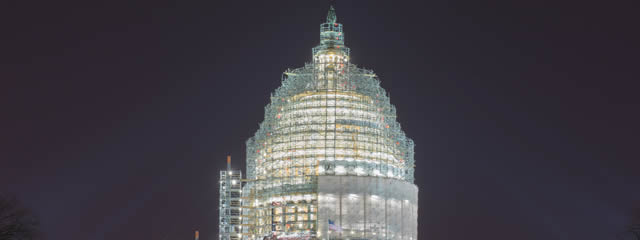 Lawmakers are quick to complain about government agencies exceeding their authority. While some complaint is justified, Congress itself contributes to the problem. From delegating too much discretion to agencies, to not taking action to rein them in, Congress has contributed enormously to today's Administrative Leviathan. The judiciary also plays a major role. Judicial deference to agency interpretations permits agencies to develop rules that are neither supported by Congressional findings, nor grounded in statutory text. As we have seen recently, even when Congress has the will to reassert its legislative authority, as by opposing a rule, obstacles can prevent it, such as a Presidential veto. The biggest losers in this state of affairs are the American people. Contrary to Constitutional design, Americans have significant laws imposed upon them not by their representatives, but by unelected and unaccountable bureaucrats. What remedies can Congress employ to rein in the Administrative State/Executive Branch overreach? How can it stop contributing to the problem? Is judicial deference to agencies compatible with Congress's over-delegation to them? Does this combination properly respect Congressional lawmaking responsibility? This panel will explore the current state of these trends that are undermining separation of powers and our representative democracy.
Lawmakers are quick to complain about government agencies exceeding their authority. While some complaint is justified, Congress itself contributes to the problem. From delegating too much discretion to agencies, to not taking action to rein them in, Congress has contributed enormously to today's Administrative Leviathan. The judiciary also plays a major role. Judicial deference to agency interpretations permits agencies to develop rules that are neither supported by Congressional findings, nor grounded in statutory text. As we have seen recently, even when Congress has the will to reassert its legislative authority, as by opposing a rule, obstacles can prevent it, such as a Presidential veto. The biggest losers in this state of affairs are the American people. Contrary to Constitutional design, Americans have significant laws imposed upon them not by their representatives, but by unelected and unaccountable bureaucrats. What remedies can Congress employ to rein in the Administrative State/Executive Branch overreach? How can it stop contributing to the problem? Is judicial deference to agencies compatible with Congress's over-delegation to them? Does this combination properly respect Congressional lawmaking responsibility? This panel will explore the current state of these trends that are undermining separation of powers and our representative democracy.
2015 National Lawyers Convention
| Topics: | Telecommunications & Electronic Media |
|---|
 Panelists will examine the impact of the FCC's Open Internet Order and reclassification of broadband as a public utility and explore possible alternative regulatory regimes. What will the courts do? What should Congress do? What should a new Administration make its first broadband priorities? With the convergence of technologies, should the current platform-specific regulation be replaced with a more flexible, service-based regulatory scheme? How could such regulations impact developing business models and evolving technologies? How is the US faring against the rest of the world in the quest for broadband leadership?
Panelists will examine the impact of the FCC's Open Internet Order and reclassification of broadband as a public utility and explore possible alternative regulatory regimes. What will the courts do? What should Congress do? What should a new Administration make its first broadband priorities? With the convergence of technologies, should the current platform-specific regulation be replaced with a more flexible, service-based regulatory scheme? How could such regulations impact developing business models and evolving technologies? How is the US faring against the rest of the world in the quest for broadband leadership?
2015 National Lawyers Convention
| Topics: | Constitution • Federalism • Founding Era & History • Separation of Powers • Supreme Court • Federalism & Separation of Powers |
|---|
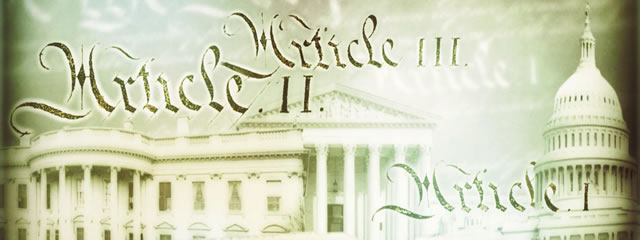 Article I, Section 1 of the Constitution provides that “All legislative Powers herein granted shall be vested in a Congress of the United States." Critics argue that, given this mandate, too much of the lawmaking power is exercised by unelected people in unaccountable agencies. These bureaucracies make “law" by both formal and informal regulation, and oftentimes both enforce their own laws and adjudicate their own enforcement actions. Some have even been given self-funding mechanisms, which removes them from even the check of Congress's appropriation power. Proponents of such delegation argue that administrative agency staff have expertise in myriad substantive areas that legislators could never obtain, and that what critics describe as a lack of accountability is actually insulation from political pressure and influence. They assert that delegations of lawmaking power are permissible if Congress provides an “intelligible principle" setting the boundaries within which the agencies are permitted to operate. The Supreme Court has, under this standard, upheld such broad grants of power to the agencies as legislative direction to regulate “in the public interest," for the “public convenience, interest, or necessity," to do what is “just and reasonable," or to prevent “unfair methods of competition." In other words, critics assert, the “intelligible principle" limitation on delegations of lawmaking power is no limitation at all. The last time the Court struck down an act of Congress because it delegated lawmaking power was in the 1935 case of Schechter Poultry Corp. v. United States, and that case involved a double delegation, first to the executive and then to a committee of private businesses.
Article I, Section 1 of the Constitution provides that “All legislative Powers herein granted shall be vested in a Congress of the United States." Critics argue that, given this mandate, too much of the lawmaking power is exercised by unelected people in unaccountable agencies. These bureaucracies make “law" by both formal and informal regulation, and oftentimes both enforce their own laws and adjudicate their own enforcement actions. Some have even been given self-funding mechanisms, which removes them from even the check of Congress's appropriation power. Proponents of such delegation argue that administrative agency staff have expertise in myriad substantive areas that legislators could never obtain, and that what critics describe as a lack of accountability is actually insulation from political pressure and influence. They assert that delegations of lawmaking power are permissible if Congress provides an “intelligible principle" setting the boundaries within which the agencies are permitted to operate. The Supreme Court has, under this standard, upheld such broad grants of power to the agencies as legislative direction to regulate “in the public interest," for the “public convenience, interest, or necessity," to do what is “just and reasonable," or to prevent “unfair methods of competition." In other words, critics assert, the “intelligible principle" limitation on delegations of lawmaking power is no limitation at all. The last time the Court struck down an act of Congress because it delegated lawmaking power was in the 1935 case of Schechter Poultry Corp. v. United States, and that case involved a double delegation, first to the executive and then to a committee of private businesses.
The phenomenon of agency officials making most of the nation's laws expanded when the Court decided, in Chevron v. Natural Resources Defense Council, (1984) to start deferring to agency interpretation of ambiguous statutes. Several members of the Court have started to question this state of affairs, and this past term, in three separate opinions, Justice Thomas called on the Court to revisit both Chevron deference and the demise of the non-delegation doctrine. Others fear an over-empowered, unelected judiciary. One response to reliance on Chevron deference was offered by Chief Justice Roberts in the King v. Burwell case. There, the Chief (writing for a 5-4 majority) declined to defer to the agency's interpretation of the statute, and instead applied Chevron deference to the Court's own interpretation. This panel will address the present state of affairs and the possible roads forward.
2015 National Lawyers Convention
| Topics: | Religious Liberty • Supreme Court • Religious Liberties |
|---|
 With the U.S. Supreme Court cert grant in the Little Sisters of the Poor case, religious liberties is once again in the legal and media spotlight. What is the recent record of the government in protecting religious liberty? Our panel will discuss everything from the contraceptive mandate and its exemptions to ministerial hiring, RLUPA, the faith-based initiative, the Planned Parenthood controversy, and everything in between.
With the U.S. Supreme Court cert grant in the Little Sisters of the Poor case, religious liberties is once again in the legal and media spotlight. What is the recent record of the government in protecting religious liberty? Our panel will discuss everything from the contraceptive mandate and its exemptions to ministerial hiring, RLUPA, the faith-based initiative, the Planned Parenthood controversy, and everything in between.
2015 National Lawyers Convention Annual Dinner
| Topics: | Article I Initiative • Constitution • Federalism • State Governments • Federalism & Separation of Powers |
|---|
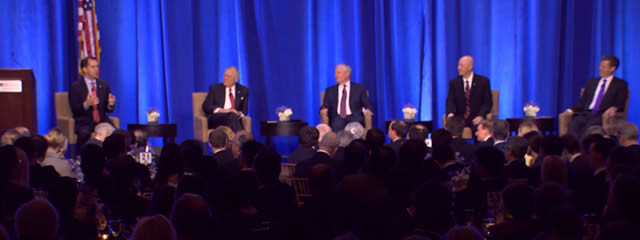 This panel was held during the 2015 National Lawyers Convention Annual Dinner on Thursday, November 12, 2015, at the Omni Shoreham Hotel in Washington, DC.
This panel was held during the 2015 National Lawyers Convention Annual Dinner on Thursday, November 12, 2015, at the Omni Shoreham Hotel in Washington, DC.
2015 National Lawyers Convention
| Topics: | Federalism • State Governments • Federalism & Separation of Powers |
|---|
 This panel of current and former state Attorneys General will examine the relationship between the federal and state governments, vertical separation of powers, as well as the regulatory regime within states. Many state AG offices are litigating more, and more important cases, than ever before. A recent spate of lawsuits has pitted a fair number of states against the federal government, challenging underlying federal authority for discreet actions taken. Meanwhile, laws and regulations by state government actors, including business licensing and other regulations governing business and employment, are being challenged by others, often defended by state Attorneys General. The panel will discuss and debate these and other emerging challenges.
This panel of current and former state Attorneys General will examine the relationship between the federal and state governments, vertical separation of powers, as well as the regulatory regime within states. Many state AG offices are litigating more, and more important cases, than ever before. A recent spate of lawsuits has pitted a fair number of states against the federal government, challenging underlying federal authority for discreet actions taken. Meanwhile, laws and regulations by state government actors, including business licensing and other regulations governing business and employment, are being challenged by others, often defended by state Attorneys General. The panel will discuss and debate these and other emerging challenges.
2015 National Lawyers Convention
| Topics: | Article I Initiative • Constitution • Federalism • Founding Era & History • Federalism & Separation of Powers |
|---|
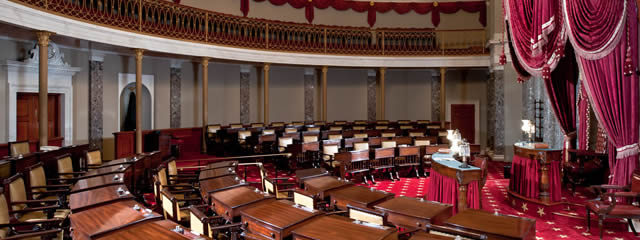 Clearly, we live in a very different society from that of the founding period. Size of both population and territory, speed of communication, and America's role in the world are but three examples of many differences. Equally clear is that these changes require adaptation, even if the original design was perfect. But how true have those changes been to the structure and spirit of that design? Have the required changes in practice been consciously or unconsciously used as a way to alter the original conception? What has been lost that would be valuable today? Are there better ways to adjust the Congressional role to major changes in society? Hypothetically, how would Congress handle a greatly increased volume of work in the unlikely event that the size of the government was halved, and could it do so without excessive reliance on the Administrative State? Is Congress dysfunctional today? If so, how can we improve it?
Clearly, we live in a very different society from that of the founding period. Size of both population and territory, speed of communication, and America's role in the world are but three examples of many differences. Equally clear is that these changes require adaptation, even if the original design was perfect. But how true have those changes been to the structure and spirit of that design? Have the required changes in practice been consciously or unconsciously used as a way to alter the original conception? What has been lost that would be valuable today? Are there better ways to adjust the Congressional role to major changes in society? Hypothetically, how would Congress handle a greatly increased volume of work in the unlikely event that the size of the government was halved, and could it do so without excessive reliance on the Administrative State? Is Congress dysfunctional today? If so, how can we improve it?
2015 National Lawyers Convention
| Topics: | Criminal Law & Procedure • First Amendment • Politics • Free Speech & Election Law |
|---|
 If we accept the premise that government, and government power, is growing, then the stakes for elective office have never been higher. With the levers of power at stake, are we seeing an increase in the use of the criminal justice system to attack legitimate political activity? Or are we perhaps seeing the proper policing of increased fraud and abuse by those in the political sphere? In a media climate in which a mere investigation can be fatal to a political campaign or career, what actions are political and what actions are criminal, and who should decide?
If we accept the premise that government, and government power, is growing, then the stakes for elective office have never been higher. With the levers of power at stake, are we seeing an increase in the use of the criminal justice system to attack legitimate political activity? Or are we perhaps seeing the proper policing of increased fraud and abuse by those in the political sphere? In a media climate in which a mere investigation can be fatal to a political campaign or career, what actions are political and what actions are criminal, and who should decide?
2015 National Lawyers Convention
| Topics: | Civil Rights • Criminal Law & Procedure |
|---|
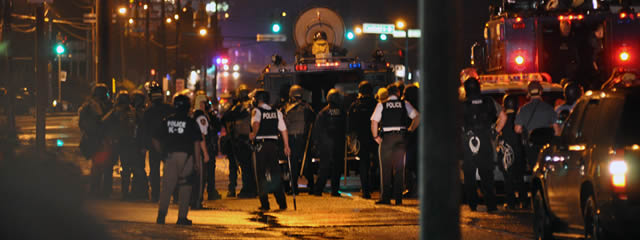 Criminal justice and policing reform are much in the news lately, sparked by events that garner national media coverage. This panel will assess the need for reform, and the road forward. How do media narratives about policing square with the empirical evidence? What are the most effective methods of policing, and how can they best be promoted? What is the proper way to balance police activity and the crime rate? In the current atmosphere, is legitimate police activity chilled? Must law enforcement officers responding to calls pause to consider their potential personal liability?
Criminal justice and policing reform are much in the news lately, sparked by events that garner national media coverage. This panel will assess the need for reform, and the road forward. How do media narratives about policing square with the empirical evidence? What are the most effective methods of policing, and how can they best be promoted? What is the proper way to balance police activity and the crime rate? In the current atmosphere, is legitimate police activity chilled? Must law enforcement officers responding to calls pause to consider their potential personal liability?
2015 National Lawyers Convention
2015 National Lawyers Convention
| Topics: | Financial Services • Law & Economics • Politics • Financial Services & E-Commerce |
|---|
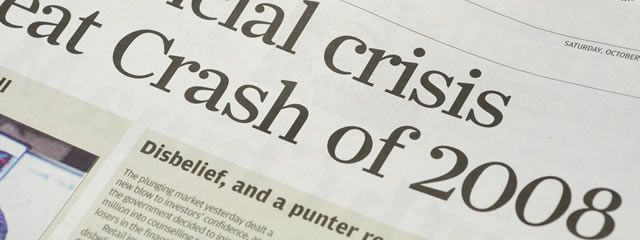 Many observers of the U.S. financial system increasingly believe that the United States will soon experience another financial crisis – the only questions are when and how bad will it be? With that expectation in mind, the panel could address the following issues: What are the likely early indicators that another crisis is in the offing? What economic conditions are the likely causes of that crisis (rising housing prices, the reemgence of shadow banking, other consequences of Dodd-Frank, crises emanating from other countries, etc.)? What might ignite that crisis? Who will likely be blamed for causing the next crisis and who or what should be blamed? What might be the political/legislative response(s) to the next crisis? What, if anything, can be done to mitigate the consequences of the next financial crisis and possibly even steer the U.S. economy away from future financial crises?
Many observers of the U.S. financial system increasingly believe that the United States will soon experience another financial crisis – the only questions are when and how bad will it be? With that expectation in mind, the panel could address the following issues: What are the likely early indicators that another crisis is in the offing? What economic conditions are the likely causes of that crisis (rising housing prices, the reemgence of shadow banking, other consequences of Dodd-Frank, crises emanating from other countries, etc.)? What might ignite that crisis? Who will likely be blamed for causing the next crisis and who or what should be blamed? What might be the political/legislative response(s) to the next crisis? What, if anything, can be done to mitigate the consequences of the next financial crisis and possibly even steer the U.S. economy away from future financial crises?
2015 National Lawyers Convention
| Topics: | Article I Initiative • Constitution • Federalism • Federalism & Separation of Powers |
|---|
Senator Orrin Hatch delivered this address at the 2015 National Lawyers Convention on Friday, November 13, 2015. He was introduced by Mr. Leonard A. Leo, Executive Vice President of The Federalist Society.
2015 National Lawyers Convention
| Topics: | Campaign Finance • First Amendment • Security & Privacy • Free Speech & Election Law |
|---|
 Supporters of mandated disclosure of the source of speech (or of money used to pay for speech) claim it can provide important information to the public and the legal system. But opponents say it violates privacy rights and can also deter the sources from speaking or contributing.
Supporters of mandated disclosure of the source of speech (or of money used to pay for speech) claim it can provide important information to the public and the legal system. But opponents say it violates privacy rights and can also deter the sources from speaking or contributing.
This debate also applies to reporters' confidential sources. In both situations, disclosure (of who contributed or spent, or who a confidential source was) may provide useful information to voters, prosecutors, civil litigants, judges, or jurors. In both situations, requiring disclosure of the source may deter people from contributing to controversial campaigns or organizations, or from talking to journalists. Politically, people tend to react differently to these reactions – confidentiality of contributors tends to be more supported by conservatives, while confidentiality of journalists' sources tends to be more supported by liberals. But structurally, are these issues similar? This panel will consider both these questions together.
2015 National Lawyers Convention
| Topics: | Foreign Policy • International Law & Trade • Security & Privacy • International & National Security Law |
|---|
 Most would agree that the world is unsettled, with hotspots in the Middle East, North Korea, the South China Sea, and the Ukraine, to name but a few. Terrorism has complicated international relations. But exactly when, and how, should America act to maintain order? Is a muscular and expeditionary style of engagement to be favored over quiet diplomacy? Is more and faster better than less and slower? How contextual should the answers to these questions be?
Most would agree that the world is unsettled, with hotspots in the Middle East, North Korea, the South China Sea, and the Ukraine, to name but a few. Terrorism has complicated international relations. But exactly when, and how, should America act to maintain order? Is a muscular and expeditionary style of engagement to be favored over quiet diplomacy? Is more and faster better than less and slower? How contextual should the answers to these questions be?
2015 National Lawyers Convention
| Topics: | Constitution • Federalist Society |
|---|
On September 11, 2001, at the age of 45 and at the height of her professional and personal life, Barbara K. Olson was murdered in the terrorist attacks against the United States as a passenger on the hijacked American Airlines flight that was flown into the Pentagon. The Federalist Society established this annual lecture in Barbara's memory because of her enormous contributions as an active member, supporter, and volunteer leader. Solicitor General Theodore B. Olson delivered the first lecture in November 2001. The lecture series continued in following years with other notable individuals. In 2015, Senator Tom Cotton of Arkansas delivered the lecture. He was introduced by Mr. Eugene B. Meyer, President of the Federalist Society.
2015 National Lawyers Convention
| Topics: | Administrative Law & Regulation • Article I Initiative • Politics • Separation of Powers • Federalism & Separation of Powers |
|---|
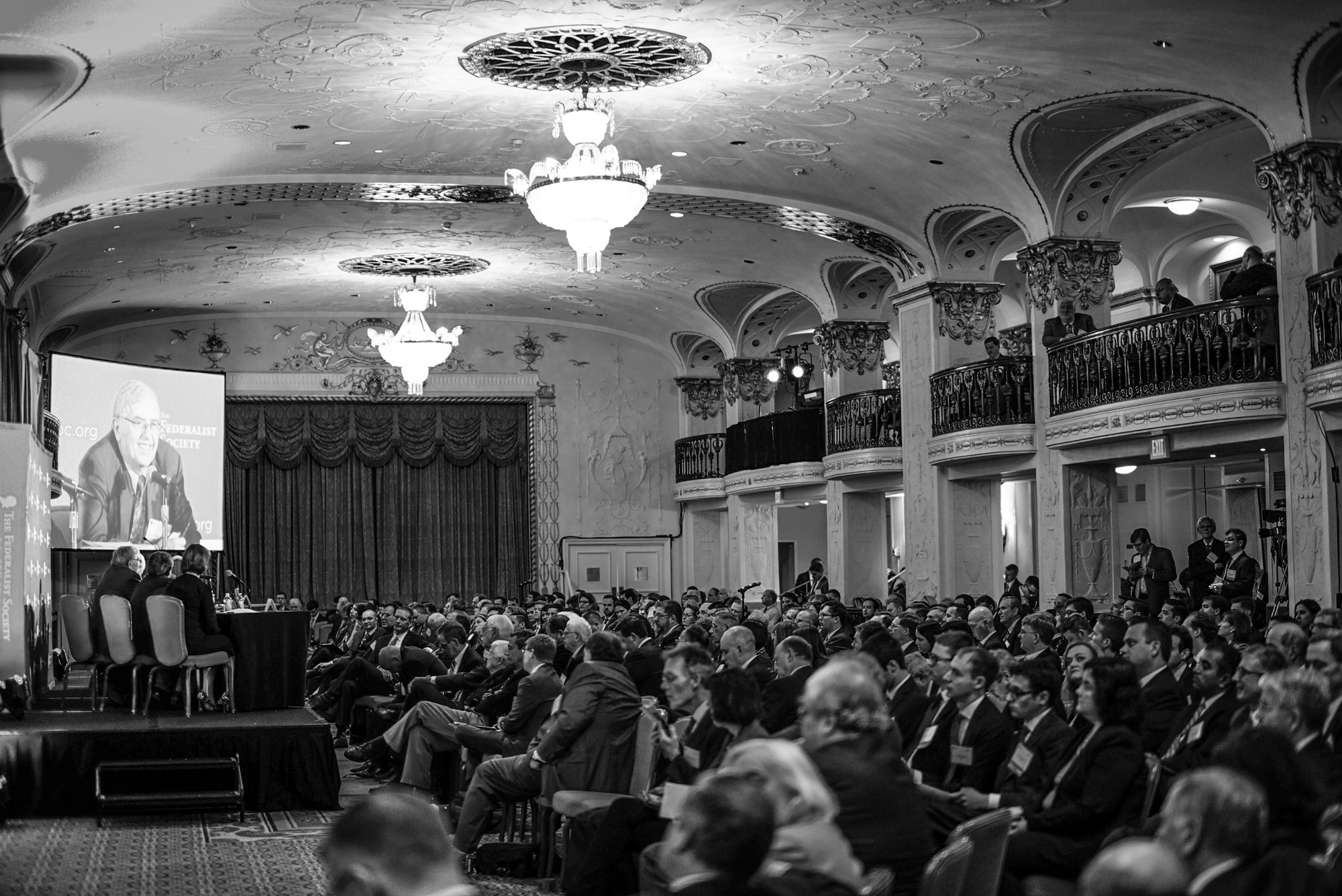 Over the years, and especially recently, it appears as though members of Congress primarily need to avoid offending constituents if they wish to stay in office. There are few rewards for genuine political leadership or the hard-nosed political deals that are oftentimes crucial to good governance. “Passing the buck" to the Executive branch, usually in the form of the Administrative State or even to the Judiciary seems less effective but more prudent. Are the incentives for members of Congress deleterious to its overall function? Is it possible to effectively change them?
Over the years, and especially recently, it appears as though members of Congress primarily need to avoid offending constituents if they wish to stay in office. There are few rewards for genuine political leadership or the hard-nosed political deals that are oftentimes crucial to good governance. “Passing the buck" to the Executive branch, usually in the form of the Administrative State or even to the Judiciary seems less effective but more prudent. Are the incentives for members of Congress deleterious to its overall function? Is it possible to effectively change them?
2015 National Lawyers Convention
| Topics: | Professional Responsibility & Legal Education |
|---|
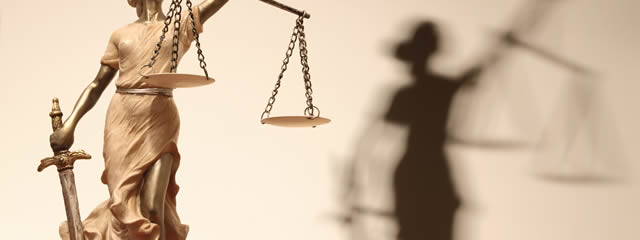 The Supreme Court has instructed in clear terms that the duty of the Federal prosecutor in a criminal prosecution "is not that it shall win a case, but that justice shall be done." Berger v. United States, 295 U.S. 78, 88 (1935). Yet the news pages are filled with examples of Federal prosecutorial overreach. In its term just ended, the Supreme Court reversed six of seven criminal convictions that reached it, several all involving some form of over criminalization that can lead to prosecutorial overreach. And large categories of prosecutorial overreach never reach the Supreme Court, from dozens of convictions of "insider trading" by non-insiders (now found not to be a crime by the Second Circuit); to civil forfeitures of property of legitimate small businesses never charged with a crime; to multi-billion dollar settlements of the thinnest of charges with large banks, pharmaceutical companies, and individuals that cannot take any risk of a criminal conviction; to what one jurist has described as an “epidemic of Brady violations abroad in the land."
The Supreme Court has instructed in clear terms that the duty of the Federal prosecutor in a criminal prosecution "is not that it shall win a case, but that justice shall be done." Berger v. United States, 295 U.S. 78, 88 (1935). Yet the news pages are filled with examples of Federal prosecutorial overreach. In its term just ended, the Supreme Court reversed six of seven criminal convictions that reached it, several all involving some form of over criminalization that can lead to prosecutorial overreach. And large categories of prosecutorial overreach never reach the Supreme Court, from dozens of convictions of "insider trading" by non-insiders (now found not to be a crime by the Second Circuit); to civil forfeitures of property of legitimate small businesses never charged with a crime; to multi-billion dollar settlements of the thinnest of charges with large banks, pharmaceutical companies, and individuals that cannot take any risk of a criminal conviction; to what one jurist has described as an “epidemic of Brady violations abroad in the land."
The panel will explore whether prosecutorial overreach has become epidemic. It will also explore potential remedies ranging from reducing the number of crimes, to sentencing reform, plea bargain reform, civil forfeiture reform, and more. Finally, it will ask who should take action to control prosecutorial overreach? Should it be the state bars? Should the courts be more aggressive? Or, is the task primarily one for Congress? If so, what are the most promising avenues of reform?
2015 National Lawyers Convention
| Topics: | Environmental & Energy Law • Separation of Powers • Federalism & Separation of Powers • Environmental Law & Property Rights |
|---|
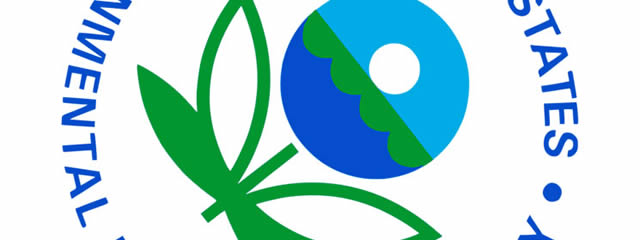 Environmental law and policy raise profound questions about Congress's role and responsibilities. Many environmental regulatory statutes leave the Environmental Protection Agency with broad discretion. Although these grants of discretion create flexibility and take advantage of EPA expertise, they also invite congressional passivity, create administrative problems, and increase special-interest pressures on the EPA and Congress alike. Congressional-EPA relations matter now more than ever because many major federal environmental laws are now more than 40 years old. The EPA is using currently enabling language from old environmental organic acts to regulate global climate change and other cutting-edge problems. What are the proper relations between Congress and the EPA? If these relations are out of alignment, can Congress realign them and how? Panelists will explore these questions with examples ranging from hydrofracturing through clean water and clean air regulation.
Environmental law and policy raise profound questions about Congress's role and responsibilities. Many environmental regulatory statutes leave the Environmental Protection Agency with broad discretion. Although these grants of discretion create flexibility and take advantage of EPA expertise, they also invite congressional passivity, create administrative problems, and increase special-interest pressures on the EPA and Congress alike. Congressional-EPA relations matter now more than ever because many major federal environmental laws are now more than 40 years old. The EPA is using currently enabling language from old environmental organic acts to regulate global climate change and other cutting-edge problems. What are the proper relations between Congress and the EPA? If these relations are out of alignment, can Congress realign them and how? Panelists will explore these questions with examples ranging from hydrofracturing through clean water and clean air regulation.
2015 National Lawyers Convention
| Topics: | Article I Initiative • Intellectual Property • Separation of Powers • Federalism & Separation of Powers |
|---|
 The Constitution specifically vests power in Congress to grant authors and inventors exclusive rights in their writings and inventions. The first Congress passed laws setting forth the requirements and procedures for granting patents and copyrights. In these early days, copyrights were granted for registered works, and Thomas Jefferson himself examined patents as a member of President George Washington's cabinet. As IP laws developed, however, they gave substantial deference to both the Patent and Trademark Office (PTO), and the Copyright Office, on matters of reviewing, granting, limiting, and defining IP rights. These agencies have come to wield significant influence over the U.S. IP regime. Recently, and notwithstanding its delegations of power, Congress has been particularly active in passing new patent and copyright legislation. Sometimes Congress specifies how the law shall be interpreted and administered, and other times it delegates this to the relevant agencies, or to the courts. By considering specific examples, this panel will examine the role of Congress, Congressional delegation, and executive agencies in crafting and administering our modern intellectual property systems.
The Constitution specifically vests power in Congress to grant authors and inventors exclusive rights in their writings and inventions. The first Congress passed laws setting forth the requirements and procedures for granting patents and copyrights. In these early days, copyrights were granted for registered works, and Thomas Jefferson himself examined patents as a member of President George Washington's cabinet. As IP laws developed, however, they gave substantial deference to both the Patent and Trademark Office (PTO), and the Copyright Office, on matters of reviewing, granting, limiting, and defining IP rights. These agencies have come to wield significant influence over the U.S. IP regime. Recently, and notwithstanding its delegations of power, Congress has been particularly active in passing new patent and copyright legislation. Sometimes Congress specifies how the law shall be interpreted and administered, and other times it delegates this to the relevant agencies, or to the courts. By considering specific examples, this panel will examine the role of Congress, Congressional delegation, and executive agencies in crafting and administering our modern intellectual property systems.
2015 National Lawyers Convention
| Topics: | First Amendment • Free Speech & Election Law |
|---|
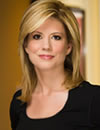 On November 14, 2015, during the Federalist Society's 2015 National Lawyers Convention in Washington, DC, Professor Nicholas Quinn Rosenkranz of the Georgetown University Law Center interviewed USA Today Columnist, Daily Beast Columnist, and FOX News Contributor Ms. Kirsten Powers.
On November 14, 2015, during the Federalist Society's 2015 National Lawyers Convention in Washington, DC, Professor Nicholas Quinn Rosenkranz of the Georgetown University Law Center interviewed USA Today Columnist, Daily Beast Columnist, and FOX News Contributor Ms. Kirsten Powers.
Note: There were technical issues with Prof. Rosenkranz's microphone at the beginning of the video during his introduction, but the issues were resolved by the time the interview begins.
2015 National Lawyers Convention
| Topics: | Federal Courts • State Courts |
|---|
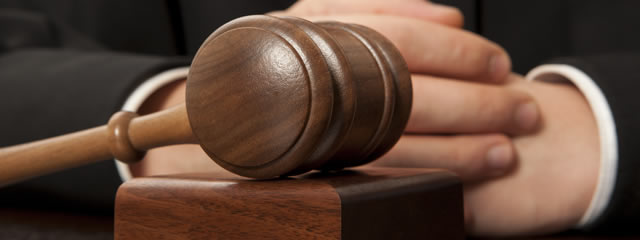 Many attorneys see a judgeship as the pinnacle of professional achievement in the legal world. It could be the visibility of judges, their unquestioned decision-making authority, the absence of clients, life tenure, or some other aspect of being a judge. Our panel of judges will discuss the realities of a career on the bench. The panelists will share their thoughts on topics as diverse as the role of the judiciary, judicial philosophy, stare decisis and precedent, opinions and dissents, the judicial appointment process, the state of the legal profession, and much more.
Many attorneys see a judgeship as the pinnacle of professional achievement in the legal world. It could be the visibility of judges, their unquestioned decision-making authority, the absence of clients, life tenure, or some other aspect of being a judge. Our panel of judges will discuss the realities of a career on the bench. The panelists will share their thoughts on topics as diverse as the role of the judiciary, judicial philosophy, stare decisis and precedent, opinions and dissents, the judicial appointment process, the state of the legal profession, and much more.
2015 National Lawyers Convention
| Topics: | Constitution • Founding Era & History • Philosophy • Religious Liberty • Religious Liberties |
|---|
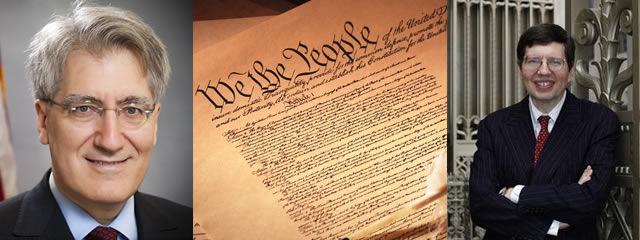
RESOLVED: The Constitution is designed for a moral and religious people and it's wholly unsuited for the government of any other.
The Eighth Annual Rosenkranz Debate was held on November 14, 2015, during The Federalist Society's 2015 National Lawyers Convention.